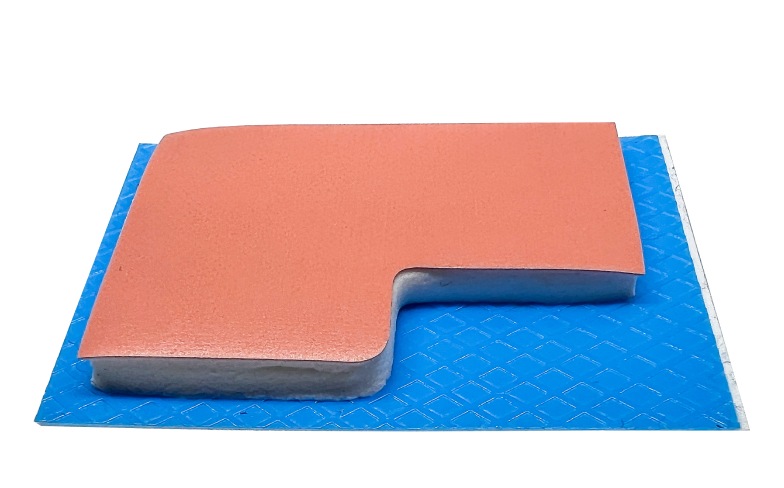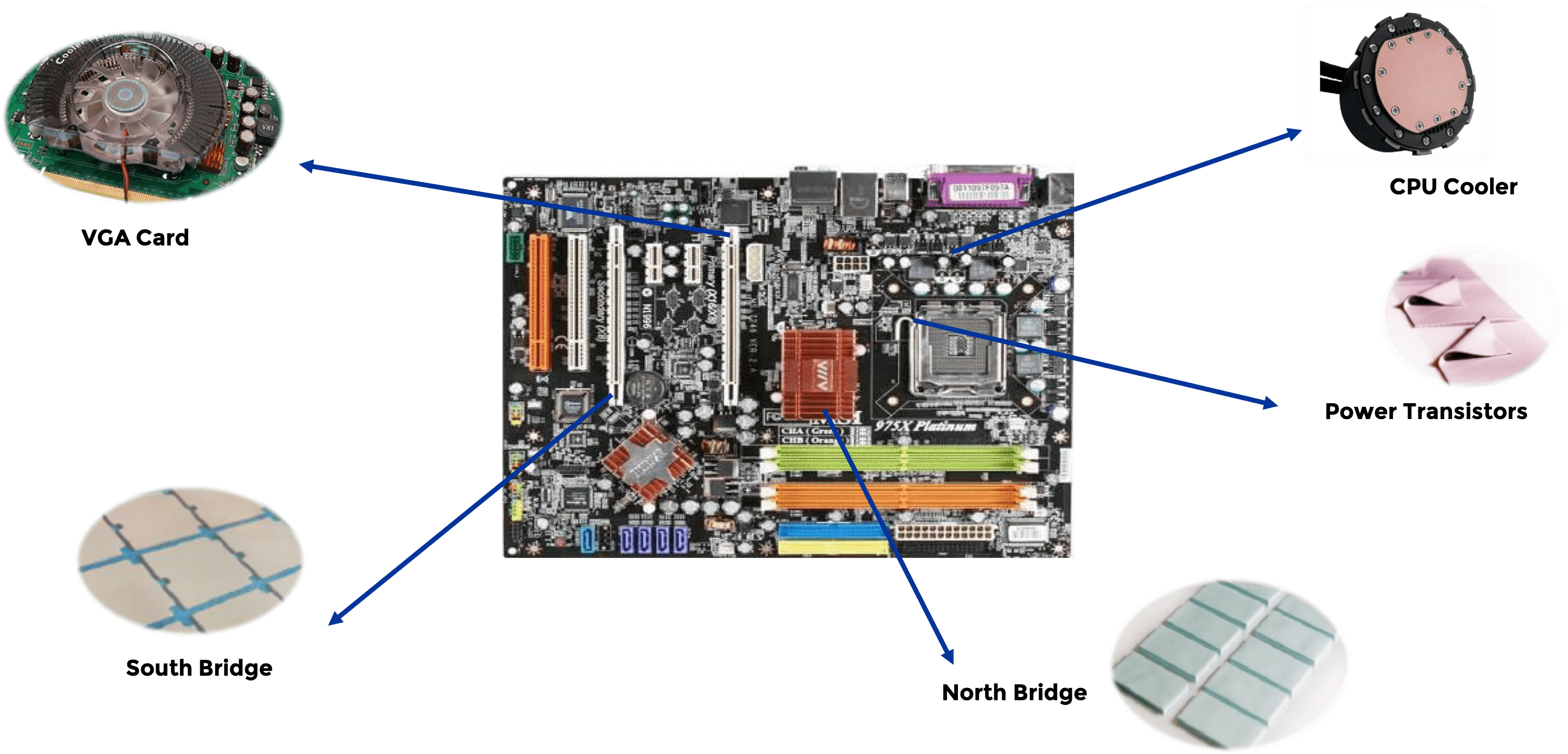Thermal Pads
Home » Thermal Pads
Thermal pads and foils are specialized materials used for thermal management in electronic devices and systems. They are designed to facilitate the efficient transfer of heat away from heat-generating components, such as CPUs, GPUs, power transistors, and other semiconductor devices. Proper thermal management is crucial to prevent overheating, which can lead to performance degradation, reduced lifespan, or even permanent damage to electronic components.

Thermal Pads:
- Thermal pads are soft, compressible materials made from silicone or other thermally conductive materials. They are available in various thicknesses and come in pre-cut shapes or as sheets that can be easily cut to the required size. Thermal pads are placed between a heat-generating component and a heat sink or cooling solution. When pressure is applied, the pad conforms to the uneven surfaces, ensuring a proper interface for efficient heat transfer.
Key features and benefits of thermal pads:- High Thermal Conductivity: Thermal pads have high thermal conductivity, allowing them to efficiently transfer heat from the component to the heat sink.
- Gap Filling: The soft and compressible nature of thermal pads helps fill any air gaps or surface imperfections, ensuring a more effective thermal interface.
- Electrical Insulation: Thermal pads are electrically insulating, preventing short circuits and electrical interference between the component and the heat sink.
- Ease of Installation: Thermal pads are easy to apply and require no curing time, making them a convenient thermal management solution.
Thermal Foils:
- Thermal foils, also known as thermal interface materials (TIMs) or thermal transfer foils, are thin, flexible sheets made from materials like graphite, aluminum, or copper. Unlike thermal pads, thermal foils are solid materials without compressible properties. They are used in applications where a thinner interface is required or where mechanical stress on the components should be minimized.
Key features and benefits of thermal foils:- Low Thermal Resistance: Thermal foils offer low thermal resistance, ensuring efficient heat transfer between the component and the heat sink.
- Thin Profile: Thermal foils are thin and provide a low profile, making them suitable for applications with tight spaces or where height constraints are critical.
- Mechanical Stability: Thermal foils provide stable thermal performance without the need for constant re-application due to their solid nature.
- Customizable Shapes: Thermal foils can be custom-cut or die-cut to fit specific component shapes and sizes, providing precise thermal interfaces.
Both thermal pads and thermal foils play a crucial role in electronic thermal management, ensuring that heat is dissipated efficiently from sensitive electronic components to heat sinks or cooling solutions, thereby maintaining optimal performance and reliability. The choice between thermal pads and thermal foils depends on the specific application, thermal requirements, and mechanical considerations.
Thermal conductivity: 0.8 ~ 11.0 W/(m· K)
Applications:
- 5G/6G communications,
- Medical electronics,
- Industrial computer system,
- Military equipment, etc.


123, Zone Industrielle de l’Argile II, 06370
Mouans Sartoux, FRANCE
Tel. +33 (0)4 93 75 75 34



深圳市格瑞维克电子科技有限公司
深圳市南山区南山街道向南社区海德二道470号海德大厦A1002A
Shenzhen, CHINA